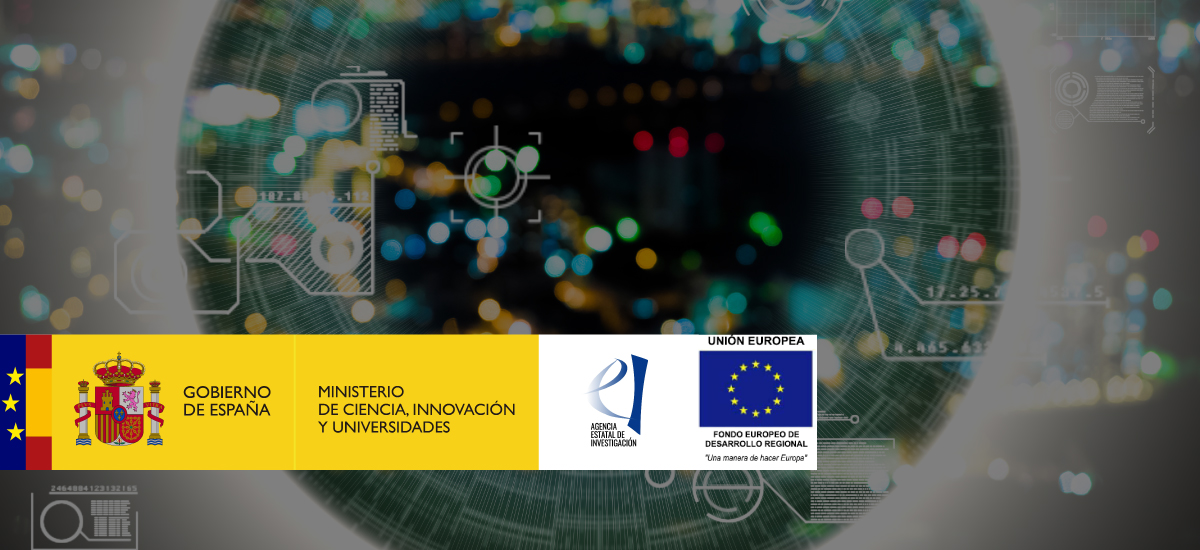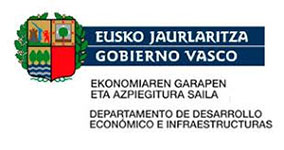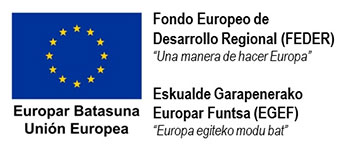Nanogrow Project
Regresar a Proyectos I+D
Proyecto Nanogrow
Nanogrow Project

The general objective facing the research of the NanoGrow project is to optimize the industrial manufacturing of corneal substitutes in Cell Therapy to obtain living organs in a short period of time for their effective application in Regenerative Medicine.
Based on a deep analysis of the current state of the art in Cell Therapies and Nanotechnology, each partner of this project will provide new insights in the field of knowledge as well as the necessary industrial research to successfully tackle the challenge. Thus, this proposal seeks to optimize the bioengineered cornea manufacturing process through the functionalization of these tissue substitutes with growth factor (GF)-loaded nanoparticles, which promote cell proliferation, and may allow shortening manufacturing times, increasing the effectiveness and tolerance of the autograft . In order to manufacture these Cell Therapy and Nanotechnology products complying GMP conditions, modular sterile rooms will be designed, close to reference hospitals, to reduce manufacturing times and avoid sample contamination.
Technological Objectives:
For the development and manufacture of bioengineered corneal substitute (BCS):
- Reduce manufacturing times by functionalizing the BCS with recombinant human epidermal growth factor (rhEGF)-loaded lipid nanoparticles (Nano-rhEGF) and growth factor-loaded lipid nanoparticles (Nano-GFs).
- Design and fine-tune BCS manufacturing processes using 3D printing to obtain corneas in a reproducible and automated way.
- Design and execute efficacy and toxicological studies of the BCS.
- Design modular sterile rooms and manufacture BCS complying GMP conditions.
For the nanoencapsulated products for Advanced Therapies:
- Scale and develop sterile processes for the industrial manufacture of Nano-rhEGF, GFs extracted from blood samples or with antibiotics.
- Develop and validate the analytical techniques to ensure the quality and reproducibility of the nanoencapsulated products as well as to evaluate their effectiveness and toxicity.
For the extraction of samples and advanced cell multiplication:
- Improve and accelerate the process of cell multiplication for the manufacture of tissue substitutes by using different materials and / or cell lineages that act as growth membranes (feeder layer).
- Optimize the extraction of GFs from blood samples for subsequent nanoencapsulation and cell multiplication.
- Expand existing hematopoietic cells in cell debris obtained from blood samples for their application in the treatment of leukemia and other hematopoietic diseases.
- Use peripheral blood cells to obtain iPS that can subsequently differentiate to other cell lineages.
Business Objectives:
- Obtain accreditation from the Spanish Agency for Medicines and Medical Devices (SPMMD) for the manufacture of the BCS.
- Based on the results obtained from the toxicological tests, prepare a complete dossier to demonstrate to the SPMMD that Nano-rhEGF can be registered and marketed not only as an excipient to optimize Cell Therapy products, but also as a medicine for the treatment of difficult to heal wounds.
- Offer the development of new industrial research of nanoencapsulated products and of Cell Therapy products to other state or international leading companies.
Socioeconomic Objectives:
- ¿ To develop an allogeneic and effective cornea substitute that allows improving or even restoring lost vision of patients.
Collaboration of the different agents within the NanoGrow project will lead to the development of several lines of research, which can be used for the future development of new products with rapid access to the market.
The development of the products proposed in this project will have an enormous social impact that will revert in the wide generation of employment (both direct and indirect), as a result of their development, manufacture and commercialization.
NANOGROW-HAZITEK: Innovative and effective tissue substitutes based on Combined Technologies of CELLULAR THERAPY, NANOTECHNOLOGY and ADDITIVE MANUFACTURING
The NanoGrow-Hazitek project is a strong commitment to bring to the market knowledge and cell therapy products (bioengineered living organs) generated by the most cutting-edge technologies, such as tissue engineering and nanotechnology. Thanks to cell therapy, a simple blood draw or biopsy can be the starting point to restore the function of damaged organs and tissues due to traumatic injuries, surgical injuries, burns, chronic degenerative diseases or cancer.
The development of autologous skin with a high efficiency-tolerance index for grafts applied in a short period of time, will significantly increase the survival of patients (mainly of severe burn victims) and reduce the recurrence of lesions, thus allowing sanitary costs saving. In the case of an optimized allogeneic corneal substitute, it will improve or even restore the patients' vision. Lastly, the expansion of hematopoietic cells in large numbers and in a short time will significantly increase the survival rates of patients with leukemia and other hematopoietic diseases and reduce the waiting lists for bone marrow donation.
The Nanogrow-Hazitek project, file number ZE-2017/00014, has received aid from the Basque Government's Department of Economic Development and Infrastructures expenses budget, through the Hazitek business R&D (I+D, by its acronym in Spanish) support program, co-financed by the European Regional Development Fund (ERDF).



